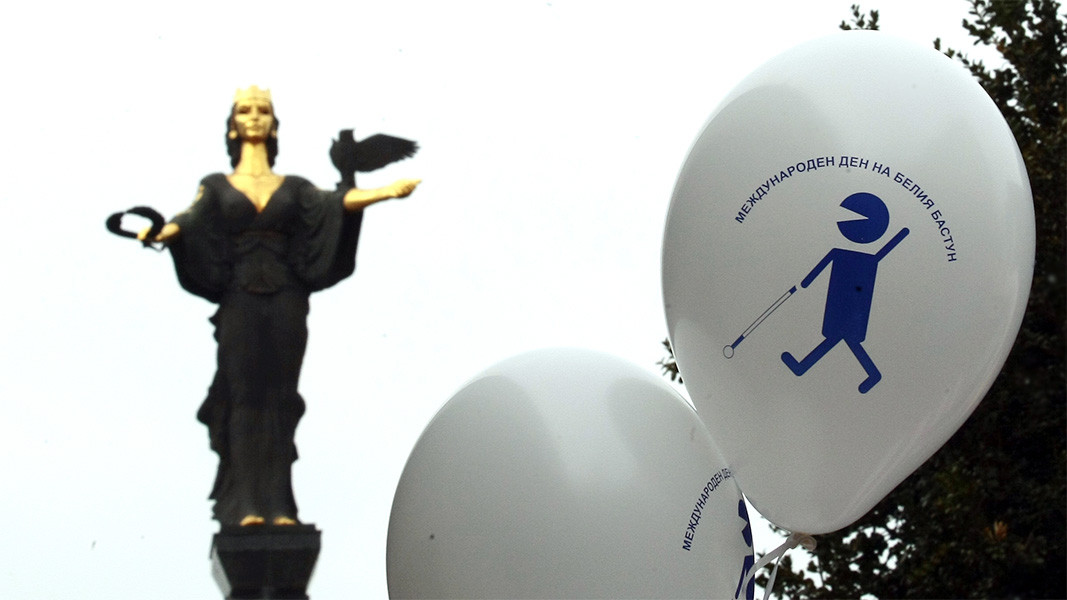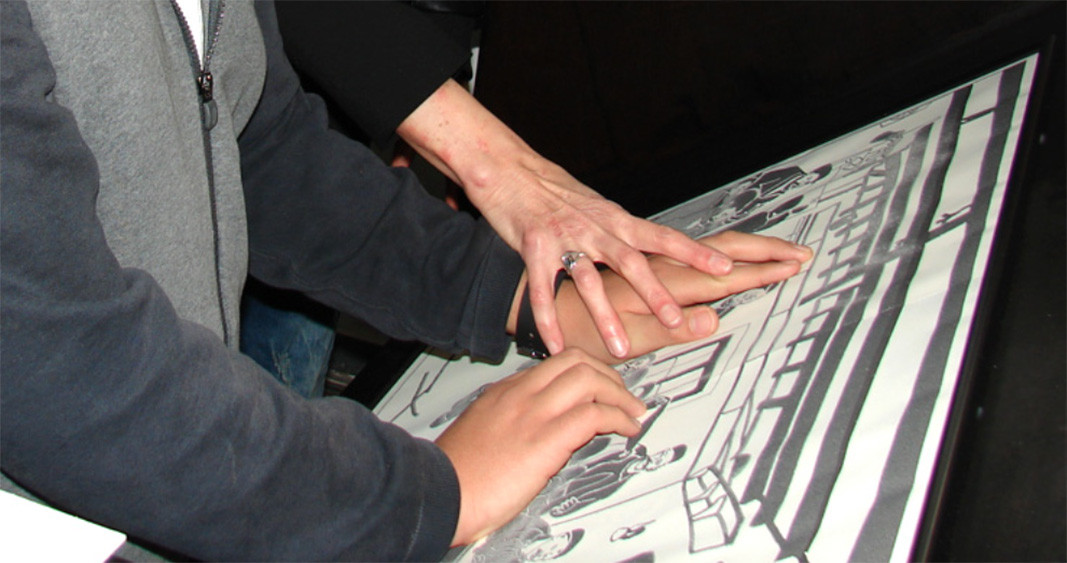The initiative to mark October 15 as White Cane Safety Day originated in the United States with a special resolution by President Lyndon Johnson. Six years later, in 1970, it was proclaimed by the President of the International Federation of the Blind as an international day dedicated dedicated to visually impaired people.
It was first marked in Bulgaria in 1980 and since then 15 October has traditionally been celebrated as an occasion to raise awareness about the problems of the blind. Again this year, campaigns are being organised across the country to make the public aware of the potential of visually impaired people. Various concerts, sporting events, cookery exhibitions, quizzes, art therapy courses and other events aimed at the general public ensure a festive mood.

On September 1, 1905, the first school for the blind in the Balkans was opened in Sofia - the State Institute for the Blind, where 11 students were taught. The opening of the school was a prelude to the emergence of an organized movement of the blind in Bulgaria. Nearly two decades later, the founding assembly of the Society of the Blind was held, and today's Union of the Blind in Bulgaria is its successor. It has the status of a nationally representative organisation of people with disabilities and is a member of the National Council of People with Disabilities - a body with advisory functions to the government, which also participates in the discussion of all normative documents and in the formation of national policy towards people with visual problems.
Accessibility is still an issue
The Union of the Blind in Bulgaria has about 10 thousand members with reduced working capacity. People with more than 50% reduced working capacity are between 35 and 40 thousand, although there are no official figures. Their main problems are in the field of employment and access to education - says in an interview for Radio Bulgaria Vasil Dolapchiev, chairman of the Union:
"Accessibility to the urban and transport environment is an important issue in big cities. From this point of view, our territorial regional structures are working with municipalities to improve conditions, to properly implement the regulations. We put tactile pavements, various markings and signs in public transport vehicles and on sidewalks where pavements are being repaired. Although much has been done in recent years to involve young people in integrated learning, the built environment is improving, but at a slow pace, and regulations are not always complied with. We are constantly meeting with the chief architects of the municipalities, talking to local mayors, drawing attention to problems.

Income policy is also important as it ensures a decent standard of living. Unfortunately, many of our members also have additional illnesses, such as diabetes, cardiovascular disease, which require regular medication, health maintenance, visits to medical facilities and treatments. It is clear to all that many of these are not covered by the health care system. In this respect, income policy for this social group is essential, and the state has a major role to play here. A great deal has been done for people with disabilities in the last few years, especially for people with visual impairments. Resources for social policies have increased a lot, but there is always room for improvement. The most important thing we are looking for is an individual approach to each person, individual support. The goal is to be able to integrate a larger social group into the community."

According to statistics from the Blind Union, in the last three months alone, 18 artistic and creative performances have been organised for visually impaired people, in which 170 people have participated. There have been 22 competitions in which more than 200 people have taken part, which clearly shows that visually impaired people need to communicate and express themselves as long as the environment allows it.
To see with your hands
Back in 2016, a special exhibition for the blind opened at the National Gallery "Kvadrat 500", called "Touch the Gallery". So far it is the only gallery in the country that has paintings accessible to a blind audience.
The latest exhibition at the gallery opens on October 17. It is dedicated to Japanese printmaking. "As of this moment, I can see and touch 4 of the works that are part of the gallery's representative collection in the general exhibition," says Martin Kostashki, curator at the National Gallery "Kvadrat 500":

"The reproductions are tactile relief models, similar to the ones we used in school with the relief maps of Bulgaria in geography. By touching them, a blind person can get an impression of what is depicted. Works by Zahari Zograf, Ivan Mrkvička, Ivan Angelov and Nikola Petrov are presented, which is a panorama of Bulgarian art. This gives blind people the opportunity to touch the works with their own hands."
The Bulgarian minority in Romania marked a significant event with the official opening of the Bulgarian Inn in the village of Izvoarele (Hanul Bilgarilor), Teleorman County (Southern Romania)- a locality with Bulgarian roots dating back over 200 years...
The 14th edition of DiVino.Taste, Bulgaria’s leading forum for wines and winemakers, will take place from 28 to 30 November at the Inter Expo Centre in Sofia. Over 80 producers from all wine regions will participate, offering tastings of around 600 of the..
Minutes before the second and final reading, at the parliamentary budget and finance committee, of the state budget for 2026, the leader of the biggest party represented in parliament GERB Boyko Borissov halted the procedure and sent the draft bill..

+359 2 9336 661
